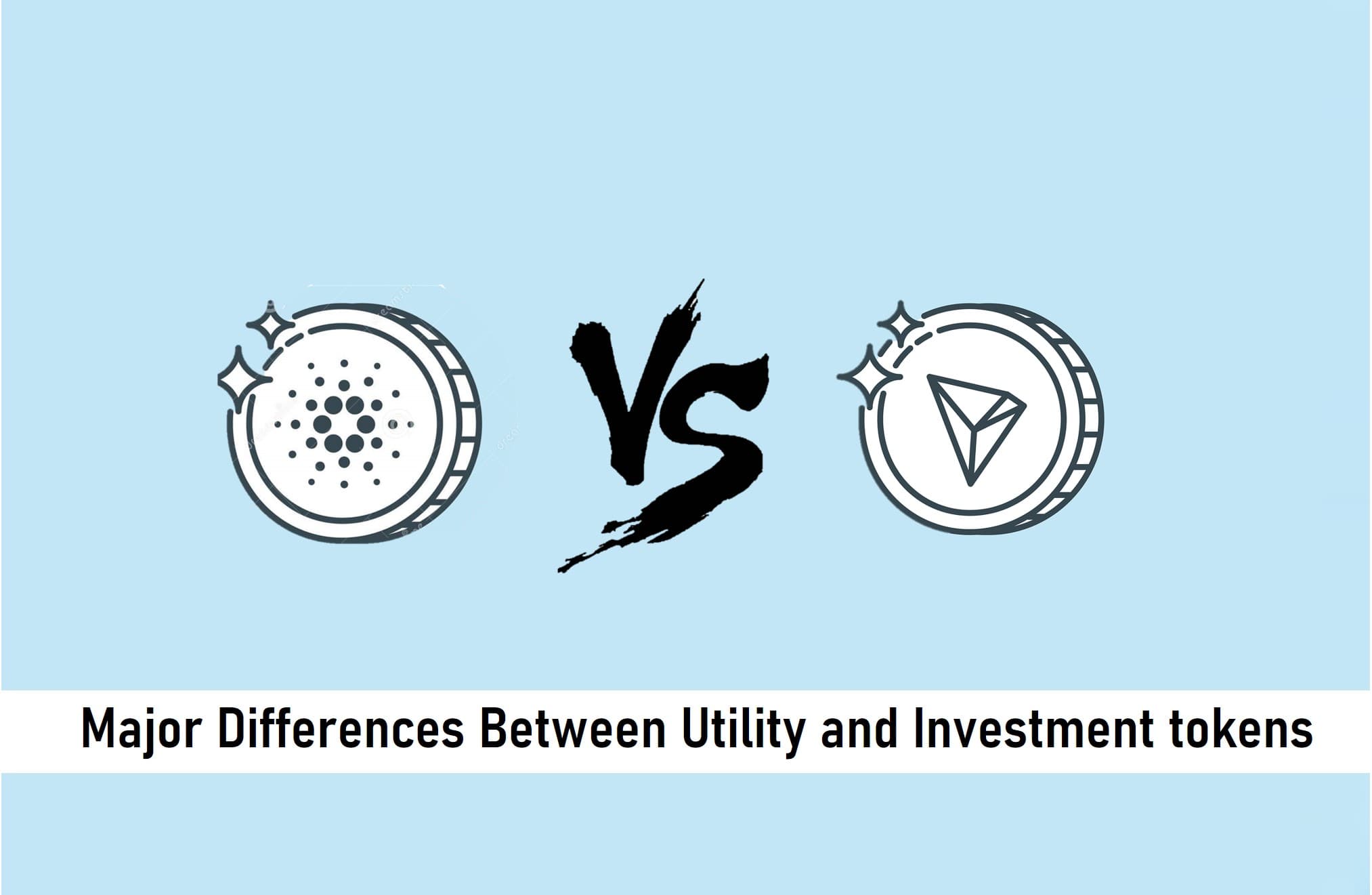
Major Differences Between Utility and Investment tokens
Blockchain technology has demonstrated to be a more secure, faster, and decentralized financial ecosystem than traditional finance instruments. As such, the concept of Decentralised Finance (DeFi) and Decentralised Exchange (DEX) has gained wide adoption among many.
Companies adopting blockchain technology, exclusively operate digitally on it. As such they have to represent their assets/services on the blockchain using cryptocurrencies.
Utility tokens and investment tokens, unlike coins that are created as digital monies, are largely used by companies for their operations on blockchain technology. Discerning between both crypto assets will help you know the kind of risk you are about to encounter when investing.
Still, confused about what differentiates coins and tokens? Learn the notable differences between coins and tokens.
Key Takeaways
• Tokens are classified as investment tokens only if they pass the Howey Test.
• Both utility tokens and investment tokens run on pre-existing blockchains but perform different functions on the blockchain network.
• Proof of ownership of stake is preserved employing security tokens on the blockchain ledger.
SEE ALSO: Notable Differences Between Coins Vs Tokens
SEE ALSO: Top 10 Crypto Utility Tokens You Should Know
SEE ALSO: Best 10 ERC20 Tokens On the Market
What are Investment Tokens?
Investment tokens, otherwise known as security tokens, are tokens that digitally represent fractions of valued assets on a blockchain. They are the investor’s stake of ownership.
What are Utility Tokens?
Utility tokens are tokens that represent the right of someone to make use of a particular value of a product or service on the blockchain. They are tied to a particular use or course of action within an ecosystem on a blockchain network.
An example of a utility token is BAT (Basic Attention Token) created specifically for tipping content creators and rewarding users of Brave browser for viewing ads.
Differences Between Utility and Investment tokens
| Utility Tokens | Investment Tokens |
| A utility token is a crypto token that serves some use case within a specific ecosystem. These tokens allow users to perform some action on a certain network. | Security tokens are the digital representation of ownership of fungible assets recorded on a blockchain ledger. |
| Utility tokens give access to prospective products or services offered. They allow holders to be able to interact with company products or services. | Investment tokens give the holder the rights of ownership to an asset or company. Rights to profit share and voting rights as well. |
| Utility tokens are used for just any purpose the developer wants them to be used for. | Investment tokens are created just for investments. |
| Utility tokens are not governed by financial market rules. | Investment tokens are subject to the same SEC (Securities and Exchange Commission) rules governing stocks, bonds, and other traditional financial securities. The SEC classifies it under securities, so long as it passed the Howey Test. |
| Utility tokens are usually synonymous with crypto projects still under development. As such, they are issued through ICOs to raise funds for the startup. | Security tokens, at the initial stage, are issued through Security Token Offering (STO). STOs are less vulnerable to fraud and are compliant with existing laws governing securities in the area where the investment token is being offered to investors. Companies conducting STOs encounter additional legal obligations. |
| The value of a utility token is set by the developers at the initial stage. | Since security tokens are digital representations of assets, on a blockchain, their value is a result of what they are tied to. The value of a security token is determined from the value of the external asset it is tied to. Security tokens derive their value from an external, tradable asset. These assets can be Cars, Stock, real estate, etc. They already have value, therefore security tokens are just fractions of the value. |
| Investors in utility tokens, in exchange for their money, get digital rights to access products or services that are yet to come. | When a security token is launched, investors get securities, which have fungible monetary value, in exchange for their money. |
| Utility tokens do not give the holders the power to have a say in the decision-making of the company. | Holders of security tokens are co-owners of the company asset the security token represents. As such, it grants voting rights to the investor in decisions concerning the company. |
| Since utility tokens are not under the scrutiny of financial market regulations, they can be traded on regular Decentralized Exchanges. | Security tokens, unlike utility tokens, are not bought or sold on regular Decentralized Exchanges. Exchanges, where security tokens can be traded, are specialized exchanges that have full compliance with financial market regulations. They regularly undergo investigation. Openfinance is an example. |
Frequently Asked Questions (FAQs)
Q1. What’s the difference between Altcoins and tokens?
An altcoin is just another fancy name for alternative coins or other coins aside from Bitcoin. So the main question here is the difference between coins and tokens.
The main difference between Altcoins and tokens lies in the fact that Altcoins are digital assets operating on their independent blockchain, while tokens are digital assets that operate on a pre-existing blockchain network belonging to another coin.
Q2. Do utility tokens increase in value?
Utility tokens increase in value as more people begin to use them for the purpose it was created. In other words, the more the demand, the more the value.
Created to purchase access to certain goods and services, the initial value of a utility token is usually fixed by the creators. This is done with a target end value in mind. If the project becomes successful in the end, the value of the token will increase towards the target value.
Investors usually take advantage of this by investing in utility tokens at launch.
Q3. Should I invest in utility tokens?
Utility tokens are not designed for investments, but they can bring in profit over time. Utility tokens are bad for investments because they are more susceptible to fraud and are not governed by the rules of the financial market. Since Investments involve taking risks, with good research one can still invest in utility tokens and get rewards. A good time to invest in during its launch, when they are relatively cheap.
Final Thoughts
Both investment tokens and utility tokens serve the transfer of value and thus can bring profit. But one poses more risk than the other. If you are looking to invest in a more regulated and secure asset, security tokens are your best bet. Utility tokens, though with very high risk, can bring in more profitability.
Read More




